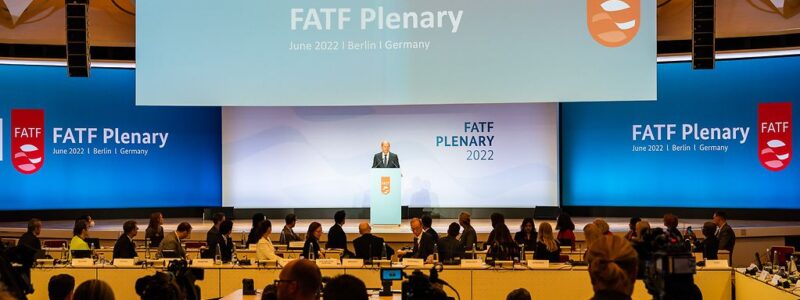
FATF (Financial Action Task Force) plans to issue detailed instructions in October this or February next year on the implementation of its new recommendations on transparency of beneficial ownership, said the head of the Secretariat’s Risk and Policies Department organization Tom Neylan.
The next FATF plenary meetings are scheduled for October and February.
Speaking at a FATF-sponsored seminar on Thursday, Neylan noted that the organization has begun the practical implementation of its new legal entity transparency standard. In this regard, the discussion participants discussed the best world practices in the field of creating registers of beneficial owners of companies, the need for constant monitoring of the relevance of the information contained in the registers, the importance of interaction in this matter between the private and public sectors.
Emil van der Doos de Villebois, Head of Global Financial Markets at the World Bank, recalled that almost all criminal schemes that the international community is fighting against use legal entities in one way or another.
Michael Levy, a professor at Cardiff University, believes that the FATF, by implementing the new recommendations at the international level, should thereby “ensure a level playing field.” In his opinion, if there is no transparency of companies, then there is a real threat that international business will simply ignore minimally risky partners, because otherwise, in the conditions of a lack of information, they will have to do so many additional checks that the client will simply “become unprofitable” for them.
“Countries are often surprised when they find that the FATF Evaluation Panel starts looking in the public domain for information about permanent or nominee directors during the evaluation. It happens unexpectedly. But we check it,” Neylan said.
Neilan and European Commission Policy Officer Chiara Bakchi agreed on the importance of using public registers. In their opinion, not only the accuracy of the information collected is important, but also the interaction between different national registries. “I’m not talking about real harmonization (of registers – IF), but at least about the relationship, when we can find common information,” Bakci said.
In March, the organization adopted amendments to recommendation 24 (transparency and beneficial owners of legal entities). The amendments oblige countries to prevent the misuse of legal entities for money laundering or terrorist financing by ensuring that adequate, accurate and up-to-date information is available on the beneficial owners of legal entities.
The authors of the amendments insist on the introduction of a multi-vector approach, that is, the use of a combination of various mechanisms for collecting information on beneficial ownership in order to ensure its timely availability to government bodies.
Jurisdictions should apply any additional measures necessary to identify the beneficiaries of companies. These measures should include the storage of information obtained by regulated financial institutions and professionals, regulators or stock exchanges.
The FATF is an intergovernmental body established in 1989 that develops standards and promotes the effective application of measures to combat money laundering, the financing of terrorism and the proliferation of weapons of mass destruction.
The FATF standards include recommendations, as well as explanatory notes to them and definitions. The measures provided for by these standards are mandatory for all members of the organization. The extent to which the relevant measures are implemented in practice is checked through a system of mutual evaluations.